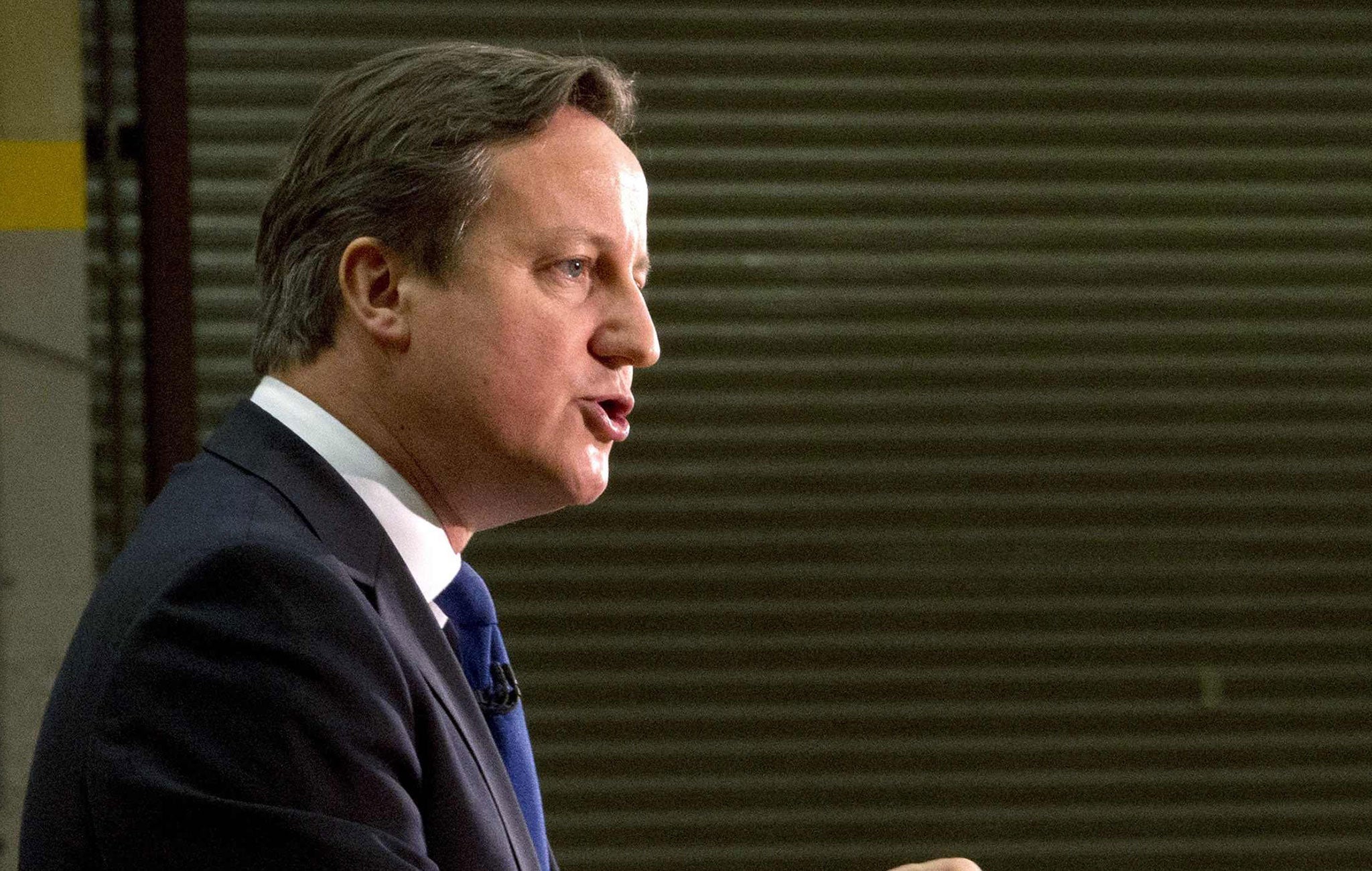David Cameron will trigger Tory civil war with a General Election win, senior party figures warn
The Conservatives are divided over the PM's rigid 2017 deadline for an EU referendum

Your support helps us to tell the story
This election is still a dead heat, according to most polls. In a fight with such wafer-thin margins, we need reporters on the ground talking to the people Trump and Harris are courting. Your support allows us to keep sending journalists to the story.
The Independent is trusted by 27 million Americans from across the entire political spectrum every month. Unlike many other quality news outlets, we choose not to lock you out of our reporting and analysis with paywalls. But quality journalism must still be paid for.
Help us keep bring these critical stories to light. Your support makes all the difference.
The Conservative Party faces more than two years of civil war over Europe if David Cameron wins next year’s general election, senior party figures are warning.
There is dismay among ministers over Mr Cameron’s decision to set a rigid 2017 deadline for staging a referendum on EU membership if he remains Prime Minister after May 7.
One Cabinet minister told The Independent: “The timetable we have given ourselves is madness. We have the prospect of the two years after the election of our party tearing itself in two.”
The minister, who likened the situation to the civil war in Tory ranks 20 years ago over the EU during John Major’s premiership, added: “It would be a continual distraction from all our work on the economy and the progress we are making on it.”
Mr Cameron has pledged to renegotiate the terms of Britain’s membership of the EU and to put the deal to the public in an in-out referendum by the end of 2017.
The party views his promise as a key vote-winner at the election and will campaign heavily on the issue in the next four months, believing it will put Labour on the wrong side of the argument with the public and help to win back former supporters attracted by Ukip.
However, Tory MPs and ministers alike fear the divisions within the party – extending all the way to the Cabinet – over EU membership would be brutally exposed in the lengthy run-up to a referendum. The splits have dogged the party since the late 1980s when Margaret Thatcher was in office.
Prominent ministers who could support withdrawal from the EU – regardless of any deal to return powers from Brussels to London struck by Mr Cameron – include Michael Gove, Iain Duncan Smith and Chris Grayling. That could leave them in a different camp from their leader and the majority of their Cabinet colleagues.
A large tranche of backbench Tory MPs would also be certain to campaign for Britain to pull out. One said yesterday: “I find it pretty hard to envisage David Cameron achieving anything in Brussels that would persuade me to argue in favour of staying in.”
Their stance would pitch them into a confrontation with their Europhile colleagues including the former Chancellor Kenneth Clarke.
The minister, who stressed he backed the principle of the referendum but not its inflexible timing, said he could contemplate a “positive future for the UK outside the EU”.
He added: “I can see the UK on a long-term drift out of the EU, whether that be in 10, 15 or 20 years. That is the direction we are going in.”
Mr Cameron first promised to stage the 2017 referendum almost two years ago. He insisted then that he believed he could “achieve a new settlement in which Britain can be comfortable” and would campaign for it “with all my heart and soul”.
He has subtly modified his language in recent months, signalling that he could be prepared to lead a No campaign if he cannot wrest back significant powers, including over the EU’s founders’ cherished principle of “freedom of movement”.
His increasingly Eurospectic tone is an apparent response to Ukip’s stunning electoral advances and the growing strength of Eurosceptic sentiment on the Tory benches.
Mr Cameron had an early foretaste last month of the resistance he will face over achieving reform when he backed off from a proposal to impose a cap on numbers of EU migrant workers admitted to Britain.
The idea was rapidly dropped in the face of opposition from other EU leaders, including German Chancellor Angela Merkel.
Subscribe to Independent Premium to bookmark this article
Want to bookmark your favourite articles and stories to read or reference later? Start your Independent Premium subscription today.
Join our commenting forum
Join thought-provoking conversations, follow other Independent readers and see their replies
Comments